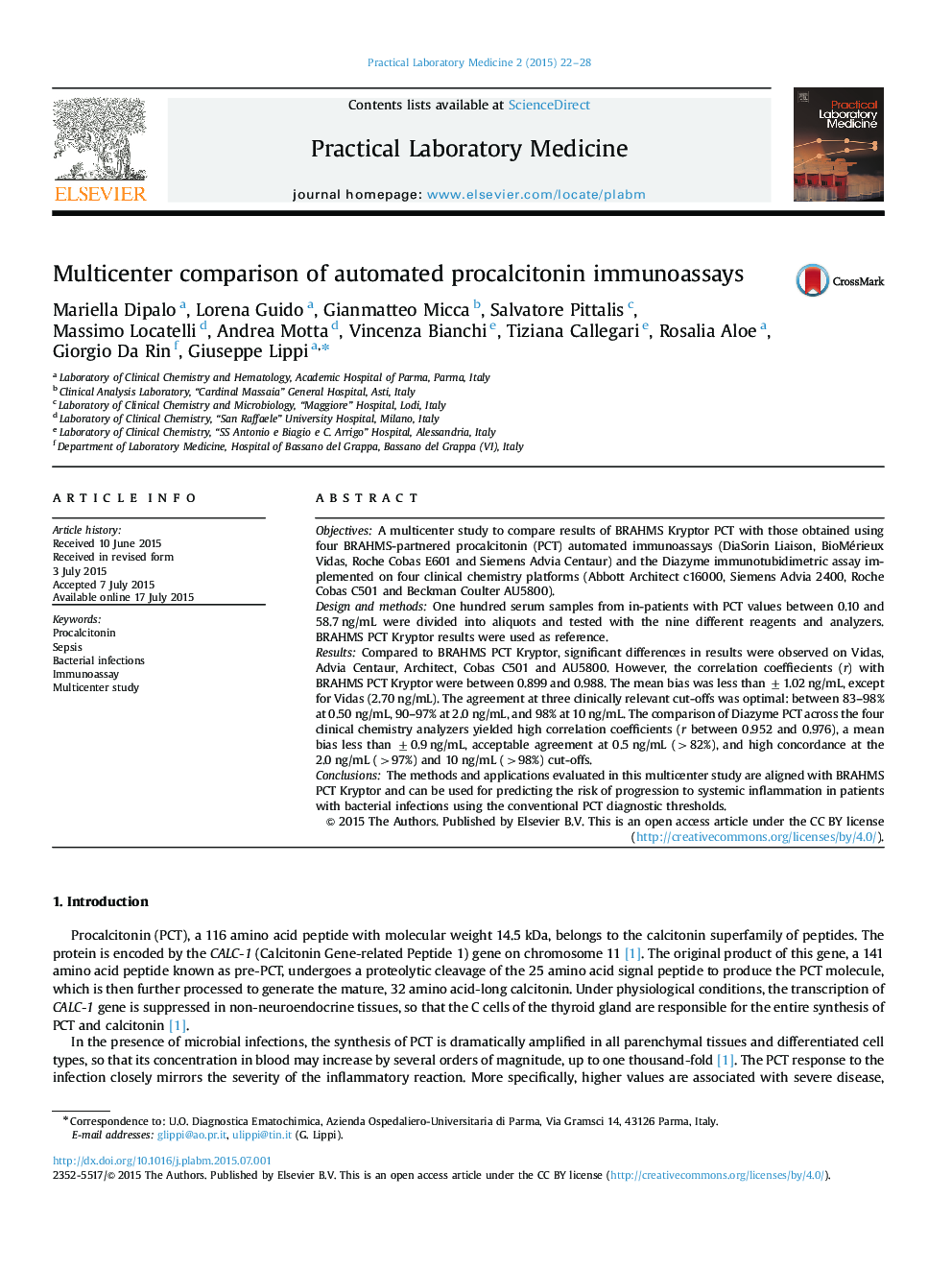| Article ID | Journal | Published Year | Pages | File Type |
|---|---|---|---|---|
| 2777381 | Practical Laboratory Medicine | 2015 | 7 Pages |
ObjectivesA multicenter study to compare results of BRAHMS Kryptor PCT with those obtained using four BRAHMS-partnered procalcitonin (PCT) automated immunoassays (DiaSorin Liaison, BioMérieux Vidas, Roche Cobas E601 and Siemens Advia Centaur) and the Diazyme immunotubidimetric assay implemented on four clinical chemistry platforms (Abbott Architect c16000, Siemens Advia 2400, Roche Cobas C501 and Beckman Coulter AU5800).Design and methodsOne hundred serum samples from in-patients with PCT values between 0.10 and 58.7 ng/mL were divided into aliquots and tested with the nine different reagents and analyzers. BRAHMS PCT Kryptor results were used as reference.ResultsCompared to BRAHMS PCT Kryptor, significant differences in results were observed on Vidas, Advia Centaur, Architect, Cobas C501 and AU5800. However, the correlation coeffiecients (r) with BRAHMS PCT Kryptor were between 0.899 and 0.988. The mean bias was less than ±1.02 ng/mL, except for Vidas (2.70 ng/mL). The agreement at three clinically relevant cut-offs was optimal: between 83–98% at 0.50 ng/mL, 90–97% at 2.0 ng/mL, and 98% at 10 ng/mL. The comparison of Diazyme PCT across the four clinical chemistry analyzers yielded high correlation coefficients (r between 0.952 and 0.976), a mean bias less than ±0.9 ng/mL, acceptable agreement at 0.5 ng/mL (>82%), and high concordance at the 2.0 ng/mL (>97%) and 10 ng/mL (>98%) cut-offs.ConclusionsThe methods and applications evaluated in this multicenter study are aligned with BRAHMS PCT Kryptor and can be used for predicting the risk of progression to systemic inflammation in patients with bacterial infections using the conventional PCT diagnostic thresholds.
